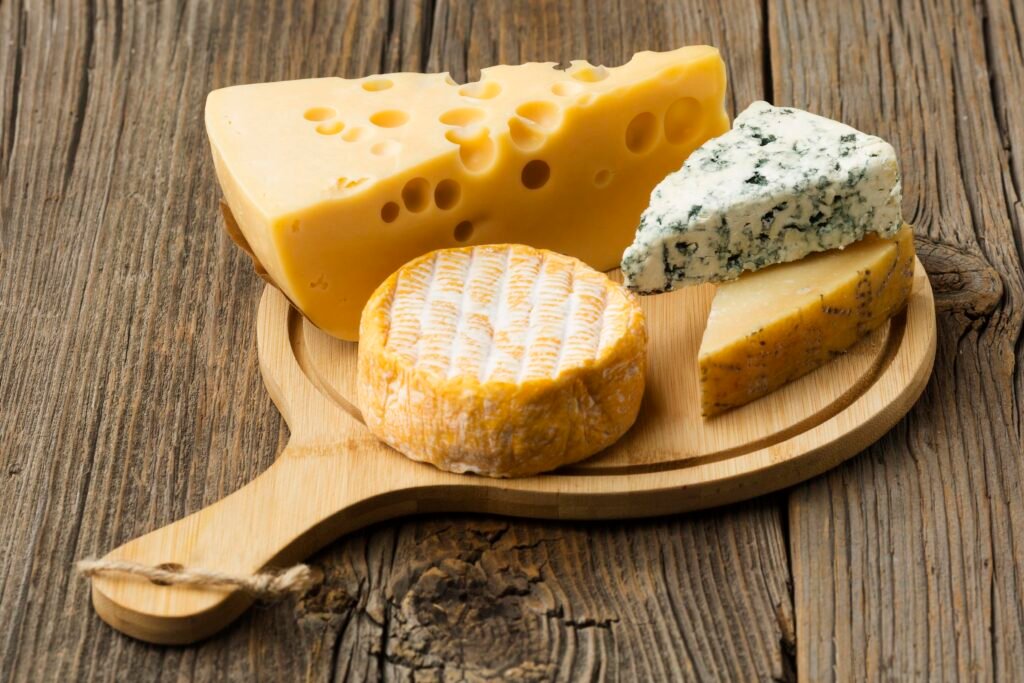If you’ve ever had a spoonful of flavored yogurt, you know it can be really sweet.
Most Dairy Products have some sugar because lactose, the sugar in milk, is naturally present. However, flavored dairy products like yogurts, ice cream, kefir, and cottage cheese may also have extra added sugars. These sweetened dairy products are a major source of added sugar in our diet.
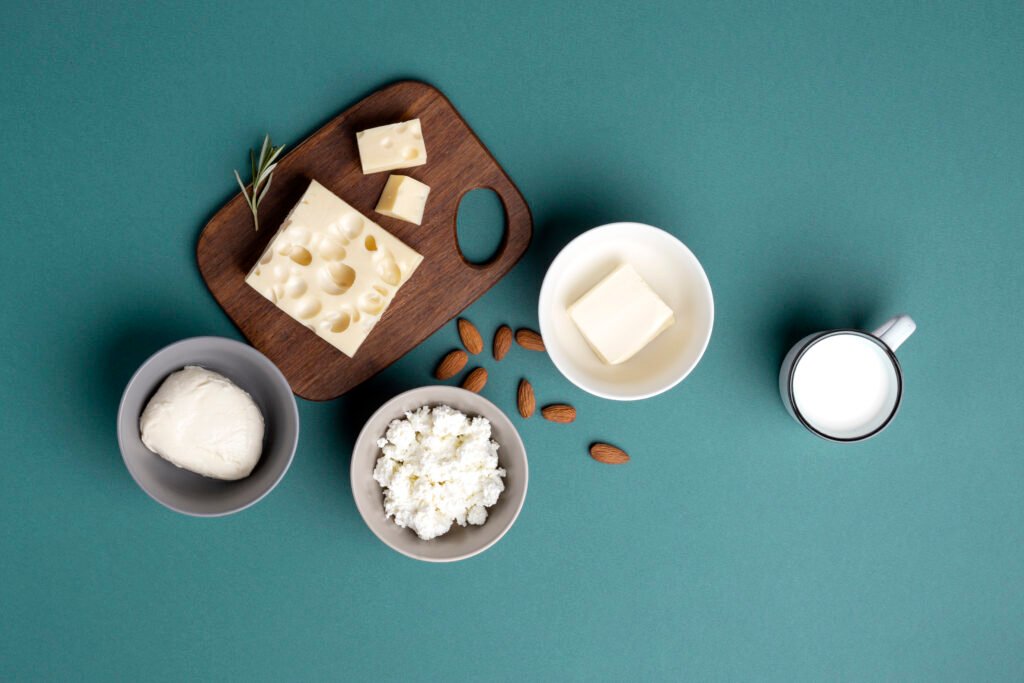
If you want to cut back on added sugar, you don’t have to stop eating dairy. Choose unsweetened dairy products that don’t have extra sugar. You’ll still get plenty of protein and nutrients for your bones and muscles without the added sweetness.
Here are six low-sugar dairy foods and tasty ways to include them in your diet.
Dairy’s Health Benefits
Most dairy products have protein, carbohydrates, and fat. The protein in dairy is crucial for growth, boosting immunity, repairing tissues, and making hormones. Research shows that eating dairy regularly can help maintain muscle mass in middle-aged and older adults.
This is important because muscle mass tends to decrease with age, which can affect physical abilities.
Dairy is also rich in important vitamins and minerals. “Dairy is an excellent source of micronutrients that help keep bones healthy, like calcium, vitamin D, and phosphorus,” says Kerry Conlon, M.S., RD, a dietitian who focuses on digestive health.
Another important nutrient in dairy is potassium. “Potassium helps with heart health, keeping your body hydrated, and balancing fluids. It can also help prevent high blood pressure, strokes, and kidney stones.
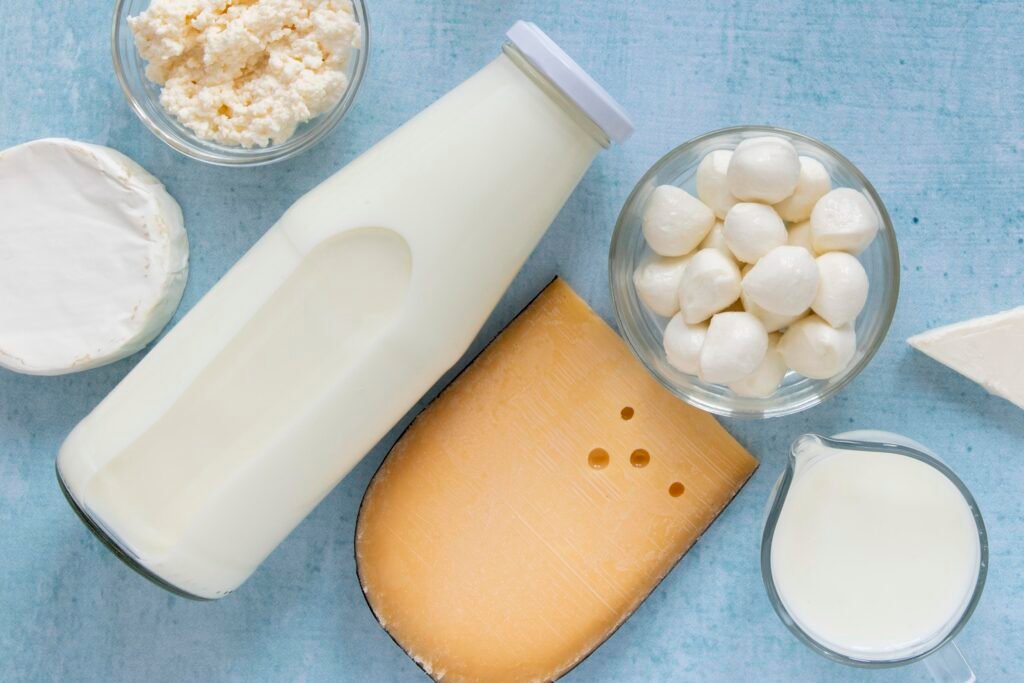
Not getting enough potassium may lead to problems with blood sugar control and increase the risk of type 2 diabetes,” says Eliza Whitaker, M.S., RDN, a registered dietitian at Dietitian Insights.
There’s a lot of talk online suggesting that dairy causes inflammation and should be avoided. However, some studies show that dairy might actually help reduce inflammation.
“The only reason to avoid dairy is if you have a milk protein allergy or lactose intolerance. Even people with lactose intolerance can often enjoy some dairy products,” says Conlon.
Low-Sugar Dairy Foods to Include in Your Diet
1. Plain Greek Yogurt
Nonfat or low-fat plain Greek-style yogurts are high in protein and lower in saturated fat. “It’s a great alternative to sour cream and can be added to many meals and snacks to boost protein and calcium,” says Whitaker.
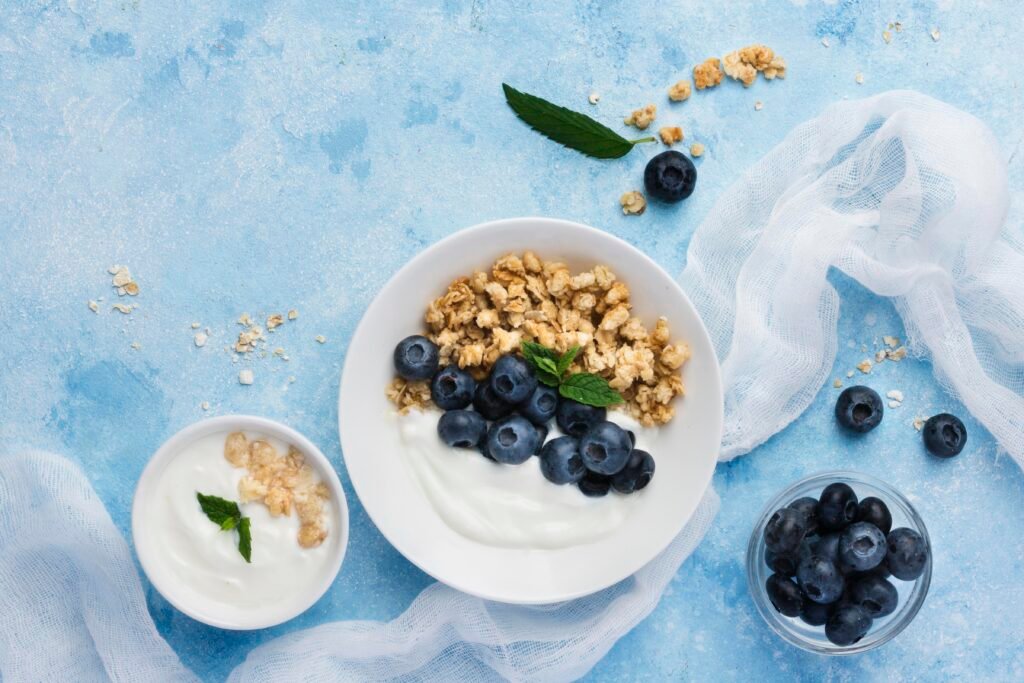
Yogurt also has probiotics, which are good for gut health. “Probiotics can help reduce inflammation, ease bloating, and promote regular bowel movements,” says Conlon.
Studies suggest that eating yogurt and other fermented milk products can lower the risk of colorectal cancer, breast cancer, and type 2 diabetes. They also help improve bone health, digestion, and heart health.
A 150-gram container of unsweetened nonfat plain Greek yogurt has 5 grams of natural sugar and 15 grams of protein. Instead of buying flavored yogurt, try mixing in fresh fruit at home for extra fiber and vitamins.
2. Kefir
It’s time to enjoy a glass of kefir. “Kefir is a nutrient-rich, fermented dairy product with many proven health benefits,” says Julia Trifan, M.S., RD, a dietitian at Children’s Hospital Los Angeles.
Kefir is packed with probiotics and has anti-inflammatory effects. Research shows that kefir can lower the production of certain inflammation-causing proteins in the body, helping to reduce inflammation and lower the risk of complications from viruses, Trifan explains.
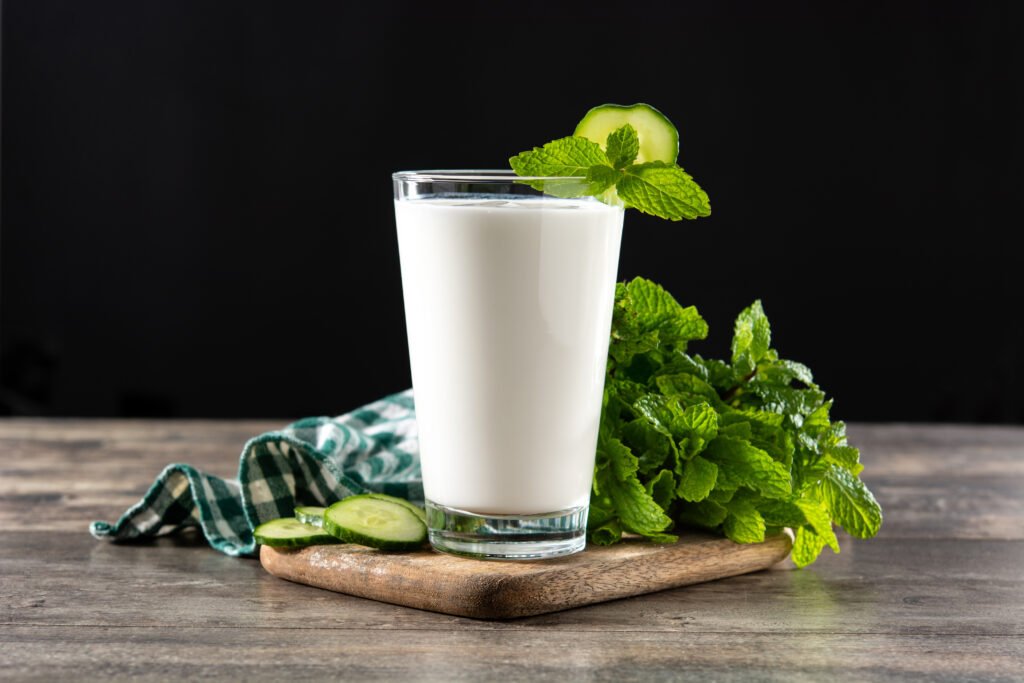
A cup of plain kefir has 7 grams of natural sugar and 10 grams of protein. You can drink it on its own or use it as the main ingredient in a smoothie.
3. Cottage Cheese
It’s popular, tasty, and has many different uses. According to Whitaker, another flexible, low-sugar dairy option is cottage cheese. A cup of low-fat cottage cheese has 9 grams of natural sugar and 24 grams of protein.
Protein helps build and maintain muscles, produce enzymes and hormones, support the immune system, and keep fluids and electrolytes balanced. It also makes you feel full longer. Whitaker says that eating more protein than the daily recommendation might help you stay at a healthy weight.
4. Milk
Milk is very nutritious and balanced. It has protein, carbs, and fat, unless you choose skim milk.
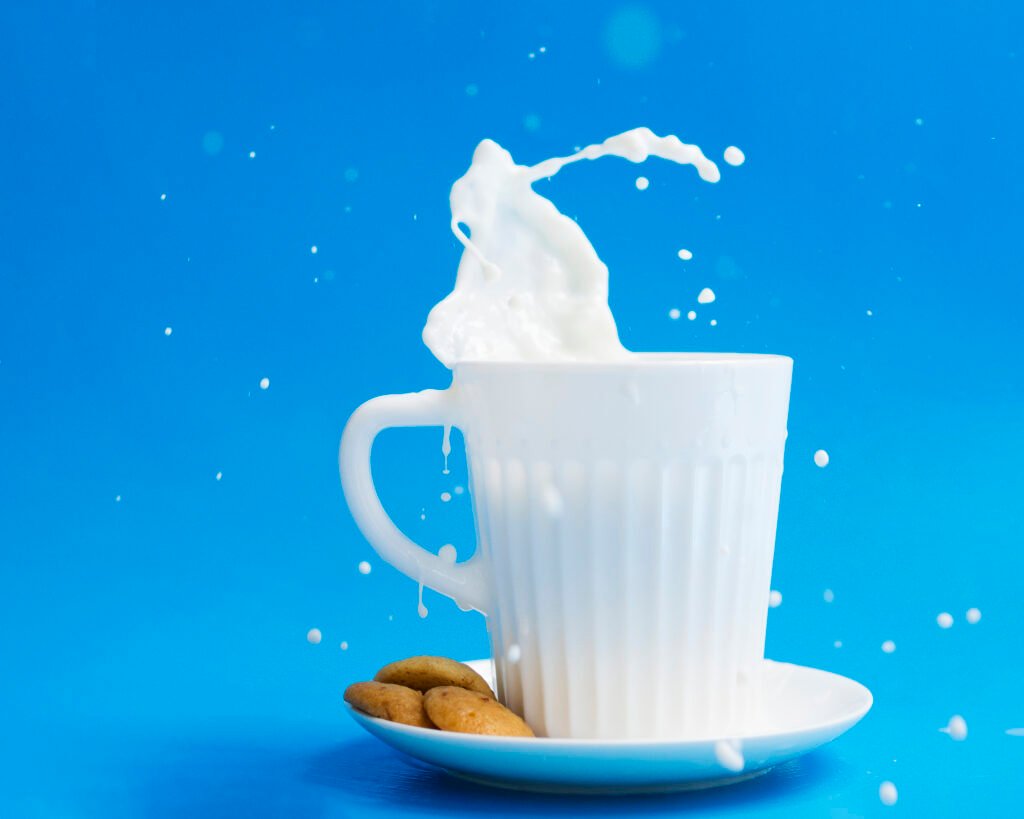
An 8-ounce glass of 1% milk has about 8 grams of protein and 12 grams of sugar. It also gives you calcium and vitamin D.
Even though milk has sugar, it’s all from natural lactose, and there are no added sugars in plain milk.
5. Ricotta Cheese
Ricotta cheese is naturally low in sugar, so it’s a good option for anyone wanting to cut back on sugar while still enjoying a creamy and rich flavor.
Ricotta cheese is made from whey, which is a liquid leftover from making cheese. Because of this, it has only a small amount of lactose, the natural sugar in milk. Ricotta is also rich in protein and calcium.
A half-cup serving of low-fat ricotta cheese has 12 grams of protein and 6 grams of natural sugar.
Adding ricotta to your meals can improve both sweet and savory dishes, giving them extra nutrition without adding extra sugar.
6. Hard Cheeses
Hard Cheeses like Cheddar, Swiss, and Parmesan are great low-sugar dairy choices that you can eat often. They are aged longer, which reduces most of their lactose and sugar. This aging process can make them easier for people with lactose intolerance to enjoy.
